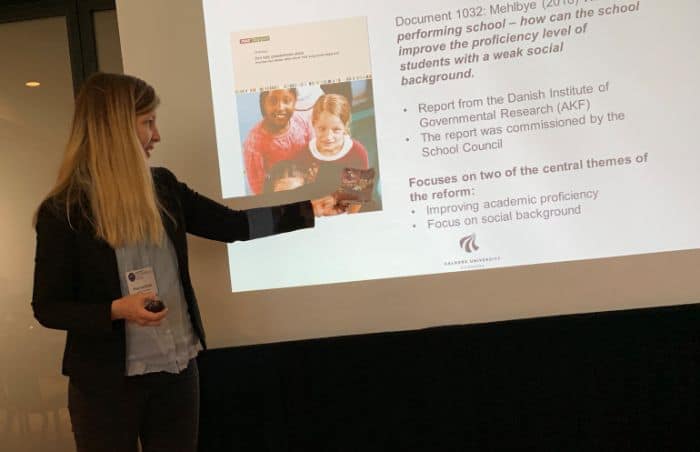How do policy makers and experts draw on regional and/or international knowledge when they formulate policies for national school reforms? What counts for them as evidence and expertise? Research findings and questions were discussed in a double symposium organized by the POLNET project at the Annual Conference for the Comparative & International Education Society in San Francisco.
Time and place: Apr. 18, 2019 11:45 AM–3:00 PM, Hyatt Regency, San Francisco

Policy Knowledge Networks and Lesson Drawing in an Era of International Comparison
Formal Panel Session, Atrium (Level 2) – Waterfront B
Chairs : Berit Karseth, University of Oslo Gita Steiner-Khamsi, Teachers College, Columbia University
Participants :
Interpreting References as a Technology of Authorization – Gita Steiner-Khamsi, Teachers College, Columbia University
Evidence-based Policy Making: Understanding Different Types of Knowledge in Policy Process – Chanwoong Baek, Teachers College, Columbia University
Reform of 2015/2018, the renewal entitled: A gathering for school – National strategy for knowledge and equivalence – Andreas Nordin, Linnaeus University
Policy Knowledge in the Finnish Curriculum Reform –Iris Santos, University of Tampere
Knowledge sources in crafting school reform policy: The case of Norway – Kirsten Sivesind, University of Oslo; Berit Karseth, University of Oslo
Global Influences of the 2013 Danish Public School Reform – Trine Juul Reder, Aalborg University; Christian Ydesen, Aalborg University
Discussants: Justin JW Powell, University of Luxembourg and Robin Shields, University of Bath
Organizer
University of Oslo in collaboration with TC Columbia University and four Nordic partner universities: Aalborg University, University of Tampere, Linnaeus University, University of Iceland